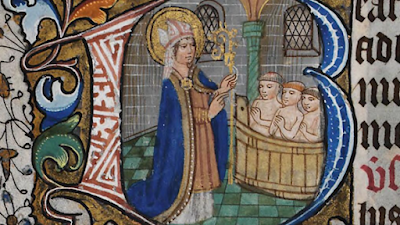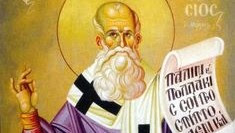Saint Sylvester I, Pope and Confessor

(In 2017, this feast is superseded by the Sunday liturgy.) December 31st is the optional memorial of Saint Sylvester I, the 4th century pope and confessor, whose papacy saw the end of the initial period of Christian persecution. He guided the Church during the reign of Emperor Constantine when the Arian heresy and the Donatist schism had lead to great discord. He convened the Ecumenical Council of Nicaea and oversaw the building of Rome’s magnificent Basilicas. Only a strong and wise man could have preserved the autonomy of the Church in the face of such a looming and powerful figure that was Constantine. _____________________________________________________ Saint Sylvester, a native Roman, was chosen by God to govern His Church during the initial years of her temporal prosperity and the triumph over her persecuting enemies. Pope Melchiades died in January, 314, and Sylvester was chosen as his successor. He governed the Church for over twenty-one years, ably organizing the

